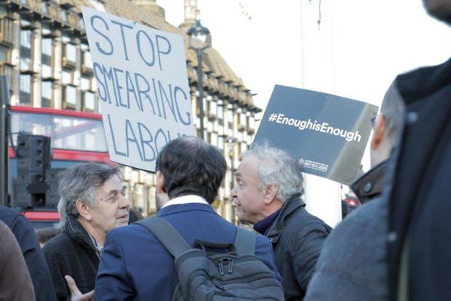Dr Sue Konzelmann from the Department of Management assesses the potential impact deeper cuts would have had on the UK in the wake of the Recession.

David Cameron’s recent description of the government’s management of the Brexit process could equally well have been applied to his government’s programme of austerity, which started in 2010 – and for most of us, is still rumbling on.
After almost a decade of austerity, during which growth has sputtered, poverty has risen and reliance on food banks has ballooned, the fiscal deficit is now almost gone. Something to celebrate? Well, it might have been, had public debt not continued to increase significantly. This is because the only way to reduce public debt is to run a significant and sustained fiscal surplus. And there is still no sign of that.
But Cameron has form when it comes to confusing a fiscal deficit with national debt. Back in 2013, Andrew Dilnot, then head of the UK Statistics Authority, found it necessary to publicly rebuke him for claiming that his government was “paying down Britain’s debts”. At the time of course, national debt was still rising strongly.
Nonetheless, Cameron now claims that things might have gone better, had he implemented his austerity plan “faster and harder”, during the “window of permission” following the 2010 election. Is he right?
“Cameron’s programme of austerity was misguided in the first place.”
In my new book, Austerity, the case study of the UK following the 2008 financial crisis strongly suggests otherwise. The period following that crisis is now often referred to as the “Great Recession” – the definition of recession being two or more successive quarters of zero or negative GDP growth. We all know that recessions usually result in higher unemployment-related social costs, as well as reduced government tax receipts. This double whammy means that an increased fiscal deficit – and therefore public debt – is pretty much inevitable during a recession. Especially if you’ve also just spent billions bailing out the banks.
Cameron’s programme of austerity was therefore misguided in the first place. Since it only targeted government spending, it simply reduced the size of the economy further. The idea that a contraction in public spending could be more than replaced by private investment and enterprise – so-called “expansionary fiscal contraction” – is at best highly controversial. In our new book, Rethinking Britain: Policy Ideas for the Many, we describe is as “the economic equivalent of Big Foot; some economists claim to have seen it, but none have been able to prove that it actually exists”. A forlorn hope then.
Cameron’s austerity was implemented when the economy was slowly beginning to grow; but the recovery was not yet strong enough to withstand its dampening effects. Policy should instead have focused on encouraging growth, which would, in turn, have reduced social costs and increased tax revenues – both of which help to reduce the fiscal deficit and – if a sustained surplus is created – public debt as well. But with a fragile economy, like the UK’s in 2010, austerity inhibited growth, with predictable results; and growth has never been stellar since. But even so, make no mistake: It isn’t austerity that reduced the deficit; it’s what little growth we’ve had. Imagine where we could have been by now had policy priorities in 2010 focused on encouraging growth, rather than killing it off.
“In economic terms, the results of “harder and faster” austerity would probably have been even more unhelpful than what actually happened.”
And what are the likely effects of “harder and faster” austerity? Deeper and more abrupt cuts in government spending would have shrunk the economy more drastically and immediately – producing a deeper recession in the process. This, in turn, would have increased social costs and reduced tax receipts “harder and faster” as well. The knock-on effect would have been a sharp rise in both the government’s deficit and debt. And it is very hard to see where the growth to lift the economy out of such a deep recession would have come from, without some kind of stimulus. In other words, in economic terms, the result of “harder and faster” austerity would probably have been even more unhelpful than what actually happened.
In social terms, the probable effect of deeper and more immediate cuts is harder to assess. Cameron’s austerity programme has – in spite of claims to the contrary – resulted in growing poverty and inequality, increased homelessness, worsening crime and reduced public services. And this has contributed to a sharp increase in the number of people who have had enough of austerity. Since many of these people were looking for some means of getting back at Cameron’s government, offering them the vote on EU membership in the middle of his austerity programme, was clearly a high-risk strategy as well. All of this has resulted in a radically changed political configuration in Britain.
It’s hard to see what’s so great about eliminating the fiscal deficit, if in the process public debt has vastly increased and social outcomes for most have sharply deteriorated. Not only has austerity not worked, it’s done immense damage to Britain. We’ve had nearly ten years of austerity, and over three years of Brexit wrangling, with apparently no end in sight for either. Surely, developing policies to fix the all too obvious problems in our economy and society, would be far more productive that crowing about a reduced deficit?
The only crumb of comfort in all this is that given Cameron’s recent comments about wishing he’d imposed austerity “harder and faster” in 2010, things might have turned out much worse.
Further Information:




